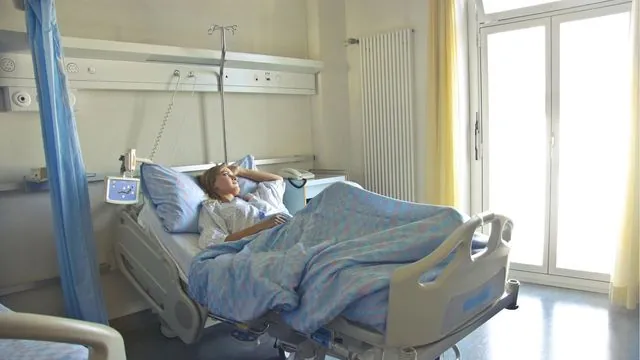
Breakthrough in Kidney Transplant Research: Immune Cells Could Predict Rejection Risks!
2024-09-30
Author: Arjun
Significant Advancements in Kidney Transplant Science
Researchers from the Germans Trias i Pujol Research Institute (IGTP) have made a significant advancement in kidney transplant science by analyzing regulatory B cells in patients who have undergone transplantation. Their findings, published in the prestigious journal *Frontiers in Immunology*, shed light on how these immune cells can potentially serve as predictive markers for organ damage and rejection risk, offering hope for more personalized and effective patient management in the future.
Current Monitoring Techniques and Their Limitations
Kidney transplantation is known to be the best treatment for patients suffering from end-stage chronic kidney disease, providing not only improved survival rates but also a better quality of life. However, current monitoring techniques for these patients leave much to be desired. The existing biomarkers, while somewhat reliable, lack the precision needed for early interventions. Typically, the only way to assess kidney health thoroughly is through invasive biopsies, which can only highlight damage that has already reached an advanced stage.
Study Overview and Key Findings
The groundbreaking study undertook a comprehensive evaluation of around fifty transplant patients during their first year post-surgery. By focusing on the regulation of B cells, researchers discovered that specific cellular patterns could indicate a patient's risk of rejection or dysfunction three months after transplantation. Remarkably, those with higher quantities of transitional B cells—a subtype linked with the regulatory functions of the immune system—exhibited a notably lower risk of future complications. In contrast, patients with fewer transitional B cells faced a grim prognosis.
Implications for Post-Transplant Care
This promising discovery could revolutionize the way doctors approach post-transplant care. Imagine being able to tailor immunosuppression treatments based on an individual’s immune profile! Patients identified as low risk might reduce their immunosuppression levels, minimizing side effects, while those flagged as high-risk could receive enhanced monitoring and proactive treatment strategies to avert rejection.
Further Research Directions
Moreover, the researchers have not stopped at just immune cell analysis. They also examined various genes previously associated with regulatory B cells, which might further elucidate their connection to kidney transplant functionality, ultimately serving as another layer of risk assessment.
Expert Opinions and Future Outlook
Sergio Garcia Garcia, a key researcher in the study, emphasizes the critical importance of understanding the immune response in transplant scenarios. He noted, "Our findings align with previous studies from other leading centers. Ongoing exploration of B cells, along with other immune components, remains vital." He believes that these insights could dramatically transform post-kidney transplant monitoring, leading to significantly improved patient outcomes.
Conclusion and Future Possibilities
As this exciting research unfolds, experts are optimistic that the integration of immune cell profiling will soon become an integral aspect of kidney transplant patient care, raising the hopes of many on the waiting list for a new lease on life. Stay tuned for more updates on this groundbreaking work that could change transplant medicine forever!




 Brasil (PT)
Brasil (PT)
 Canada (EN)
Canada (EN)
 Chile (ES)
Chile (ES)
 Česko (CS)
Česko (CS)
 대한민국 (KO)
대한민국 (KO)
 España (ES)
España (ES)
 France (FR)
France (FR)
 Hong Kong (EN)
Hong Kong (EN)
 Italia (IT)
Italia (IT)
 日本 (JA)
日本 (JA)
 Magyarország (HU)
Magyarország (HU)
 Norge (NO)
Norge (NO)
 Polska (PL)
Polska (PL)
 Schweiz (DE)
Schweiz (DE)
 Singapore (EN)
Singapore (EN)
 Sverige (SV)
Sverige (SV)
 Suomi (FI)
Suomi (FI)
 Türkiye (TR)
Türkiye (TR)
 الإمارات العربية المتحدة (AR)
الإمارات العربية المتحدة (AR)